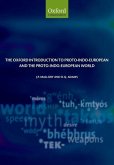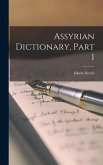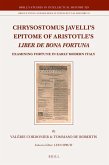Exploring some of the key ideas of ancient Greek culture that resonate with modern conceptions of destiny, and drawing on approaches from cognitive anthropology, and drawing on approaches from cognitive anthropology, Eidinow examines the ancients' notion of luck as a means to explain daily experiences. Focusing on writers such as Homer, Herodotus, Thucydides and Demosthenes, the author shows how concepts of fate in antiquity changed over time, in response to social and political currents. She draws too on modern cultural texts like Terminator 2 and Lawrence of Arabia, demonstrating how the recurring questions "what if?" and "why me?" are fundamental to the human relationship with an uncertain future, whether it be in the ancient past or the present day.








